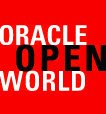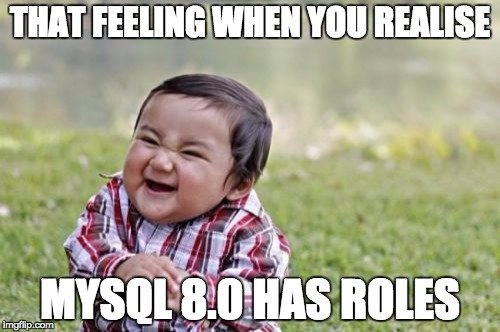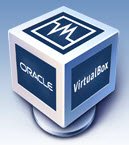 The announcement that several Oracle products will be released “Cloud First” from now on has been an interesting talking point for many of us. I think I first heard this message at last years OOW, but I can’t remember if it was public, or in a meeting covered by an NDA. There have been public statements about this since then, but at OOW16 we have the first example that directly affect me!
The announcement that several Oracle products will be released “Cloud First” from now on has been an interesting talking point for many of us. I think I first heard this message at last years OOW, but I can’t remember if it was public, or in a meeting covered by an NDA. There have been public statements about this since then, but at OOW16 we have the first example that directly affect me!
Oracle Database 12c Release 2 is here, kind-of. If you sign up for the “Oracle Database Exadata Express Cloud Service” you will get a PDB on Oracle 12.2. So what are my thoughts on Cloud First?
Conspiracy: “Oracle are forcing us on to their cloud. Won’t someone think of the children?” Come on. Let’s be real. I speak to people all the time who have yet to get all their systems to Oracle 11g. Making them wait a bit longer for 12.2 is not going to be a big deal for most businesses.
Bugs: The Oracle database is a big and complicated product. It is inevitable that new versions will contain bugs. The most important point is how long will it take to fix them? In the past we have had the, “wait for the second release”, and more recently the, “wait for the first patch set”, mindset. I can understand the later. The 12.1.0.1 release was very buggy. The 12.1.0.2 release felt solid. If it is done *properly*, Cloud First will allow Oracle to patch bugs really quickly, so most users never have to encounter them **. By the time we get an on-premise release, it should be solid. Hands up how many people were going to go live with 12.2.0.1 soon after release date? None of you? Yeah. I guessed that. Perhaps when we get the first on-premise release of 12.2 it will actually be production ready!
Quicker release cycle? : For many of the products, the Cloud First approach means they will be able to do a quarterly release cycle, with a yearly on-premise release. I think that’s a good thing. Will it result in the same release cycle for the database? I highly doubt that, but it would be nice if we get releases a bit quicker. A new release every 3-4 years is getting out of hand…
Evangelism: This is one that hits me hard. I’ve not been on the 12.2 beta program. I’ve not had access to the product. Now 12.2 is available I can only get hold of it via a cloud subscription and even then it is fully managed, so I can’t practice many of the DBA tasks on it.
I’m guessing most of the beta testers who have prewritten articles waiting to go live can’t actually release them until the on-premise release appears. If they do, they are not based on the production release. If they are DBA articles, they definintely can’t be released as there is no way they can test DBA stuff on the current production release and releasing articles based on a beta product is doing you a disservice and may still be breaking their NDA.
Without wanting to sound overly dramatic, this means the 12.2 release is “dead to me” until there is an on-premise release. So Oracle should panic because Tim Hall isn’t happy about something right? Of course not. I think evangelists like myself will be affected, but so what? Those articles will still get written ***. They will just arrive a few weeks/months/years later. It’s annoying for me, but it’s not going to bring Oracle down. 🙂
Conclusion : Although the Cloud First approach to product delivery is extremely annoying to me personally, and will keep the conspiracy theorists busy, I can see some really positive sides to it if it’s done correctly. Time will tell!
Cheers
Tim…
Updates: Based on comments.
- ** Of course, someone has to identify the bugs, which is why I said “most users never have to encounter them”. Many companies run with un-patched systems for a long time and encounter bugs that were fixed a long time ago. In an ideal scenario, one customer finds the bug, it gets fixed and everyone is patched preemptively. 🙂
- *** What about consultants? Until the on-premise release is available, nobody has access to the on-premise product. As a result, you are in the same position as everyone else that was not on the beta. Early adopters, like consultants, will start their early adoption from the point where the on-premise release is available. Who is going to ask you to do DBA work on the version before that? The only access a customer can have is the fully managed system, so nobody. If you *must* be working with 12.2 from day one for fear of being left behind, pay your $170 per month… Judging by the typical adoption timescales, this is not an issue for the vast majority of consultants.
 I’ve been away from home for over a week and we’ve finally got to Day 1 of the conference… 🙂
I’ve been away from home for over a week and we’ve finally got to Day 1 of the conference… 🙂

 Oracle OpenWorld is imminent and we will see Oracle continue their push into the cloud market. Oracle have had a long history of being strong in the technology space, but conversely they have had a long history of being weak as far as customer service is concerned. The move to the cloud presents a unique problem for Oracle that I’m not sure they can even see at the moment…
Oracle OpenWorld is imminent and we will see Oracle continue their push into the cloud market. Oracle have had a long history of being strong in the technology space, but conversely they have had a long history of being weak as far as customer service is concerned. The move to the cloud presents a unique problem for Oracle that I’m not sure they can even see at the moment… Today was Day 2 of the Oracle ACE Director Briefing.
Today was Day 2 of the Oracle ACE Director Briefing. I spent yesterday at the Cloud User Experience (UX) Strategy Day at Oracle HQ. I’m not really the target audience for this event as I’m not a front-end developer and at the moment I know almost nothing about Oracle Cloud Apps, but I am gradually being drawn into this area by a number of external forces.
I spent yesterday at the Cloud User Experience (UX) Strategy Day at Oracle HQ. I’m not really the target audience for this event as I’m not a front-end developer and at the moment I know almost nothing about Oracle Cloud Apps, but I am gradually being drawn into this area by a number of external forces.
 VirtualBox
VirtualBox